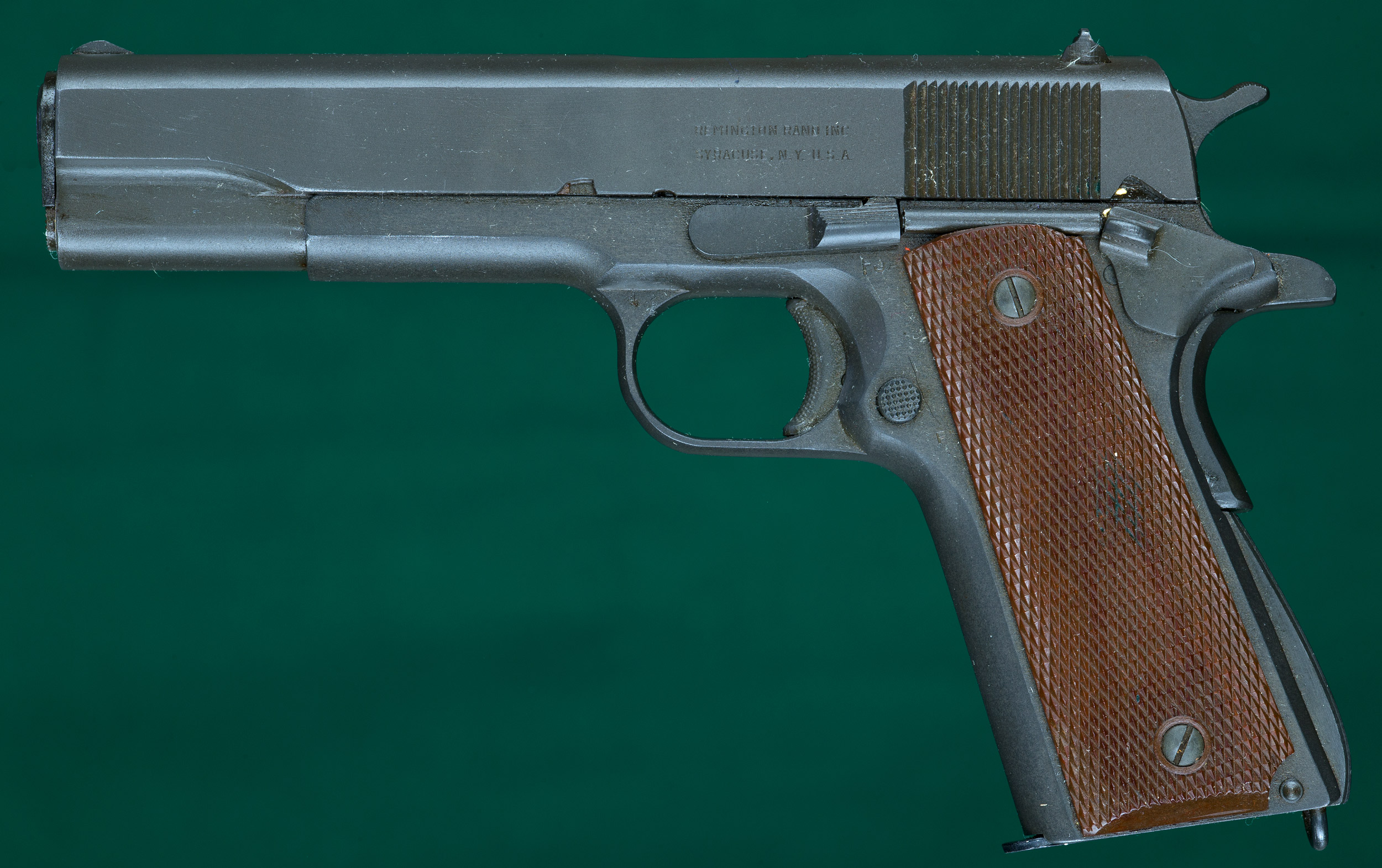
This led to the 1906 trials of pistols from six firearms manufacturing companies (namely, Colt, Bergmann, Deutsche Waffen und Munitionsfabriken (DWM), Savage Arms Company, Knoble, Webley, and White-Merrill). 45 caliber" and would preferably be semi-automatic in operation. Thompson stated that the new pistol "should not be of less than. įollowing the 1904 Thompson-LaGarde pistol round effectiveness tests, Colonel John T. The problems prompted the Chief of Ordnance, General William Crozier, to authorize further testing for a new service pistol. 45 Colt caliber, which had been standard during the late 19th century the heavier bullet was found to be more effective against charging tribesmen. Army briefly reverted to using the M1873 single-action revolver in. 38 Long Colt, found it to be unsuitable for the rigors of jungle warfare, particularly in terms of stopping power, as the Moros had high battle morale and often used drugs to inhibit the sensation of pain. Īmerican units fighting Tausūg guerrillas in the Moro Rebellion in Sulu during the Philippine–American War using the then-standard Colt M1892 revolver. Fifty of these were tested as well by the U.S. Consequently, DWM produced an enlarged version of the round, the 9×19mm Parabellum (known in current military parlance as the 9×19mm NATO), a necked-up version of the 7.65 mm round. Other governments had made similar complaints. During field trials, these ran into some problems, especially with stopping power.

This led to a purchase of 1,000 DWM Luger pistols, chambered in 7.65mm Luger, a bottlenecked cartridge. ĭuring the end of 1899 and start of 1900, a test of self-loading pistols, including entries from Mauser (the C96 "Broomhandle"), Mannlicher (the Mannlicher M1894), and Colt (the Colt M1900), was conducted. In the U.S., such a program would lead to a formal test at the turn of the 20th century. The designs caught the attention of various militaries, each of which began programs to find a suitable one for their forces. Nevertheless, the application of his principle of using cartridge energy to reload led to several self-loading pistols in 1896. Maxim had designed a self-loading rifle in the 1880s, but was preoccupied with machine guns. The next decade would see a similar pace, including the adoption of several more revolvers and an intensive search for a self-loading pistol that would culminate in the official adoption of the M1911 after the turn of the decade.
#Remington rand 1911a1 checkered mainspring housing series#
The United States was adopting new firearms at a phenomenal rate several new pistols and two all-new service rifles (the M8 Krag and M1895 Navy Lee), as well as a series of revolvers by Colt and Smith & Wesson for the Army and Navy, were adopted just in that decade. The M1911 pistol originated in the late 1890s as the result of a search for a suitable self-loading (or semi-automatic) pistol to replace the variety of revolvers then in service. Modernized derivative variants of the M1911 are still in use by some units of the U.S. Army did not replace the M1911A1 with the Beretta M9 until October 1986, and due to the M1911's popularity among users, it has not been completely phased out. The M1911A1 was replaced by the adoption of the 9 mm Beretta M9 pistol as the standard U.S. It was widely used in World War I, World War II, the Korean War, and the Vietnam War. The pistol served as the standard-issue sidearm for the United States Armed Forces from 1911 to 1985. military procured around 2.7 million M1911 and M1911A1 pistols during its service life. because of the design's relatively slim width and the stopping power of the. Compact variants are popular civilian concealed carry weapons in the U.S. It is popular with civilian shooters in competitive events such as USPSA, IDPA, International Practical Shooting Confederation, and bullseye shooting. The pistol was widely copied, and this operating system rose to become the preeminent type of the 20th century and of nearly all modern centerfire pistols. ĭesigned by John Browning, the M1911 is the best-known of his designs to use the short recoil principle in its basic design. 45, Automatic, M1911A1 in the Vietnam War era. The designation changed to Pistol, Caliber. 45, M1911 for the original model of 1911 or Automatic Pistol, Caliber.

The pistol's formal designation as of 1940 was Automatic Pistol, Caliber. The M1911, also known as Colt 1911, or Colt Government, is a single-action, semi-automatic, magazine-fed, recoil-operated pistol chambered for the. 7-round or 8-round (.45 ACP) box magazine


 0 kommentar(er)
0 kommentar(er)
